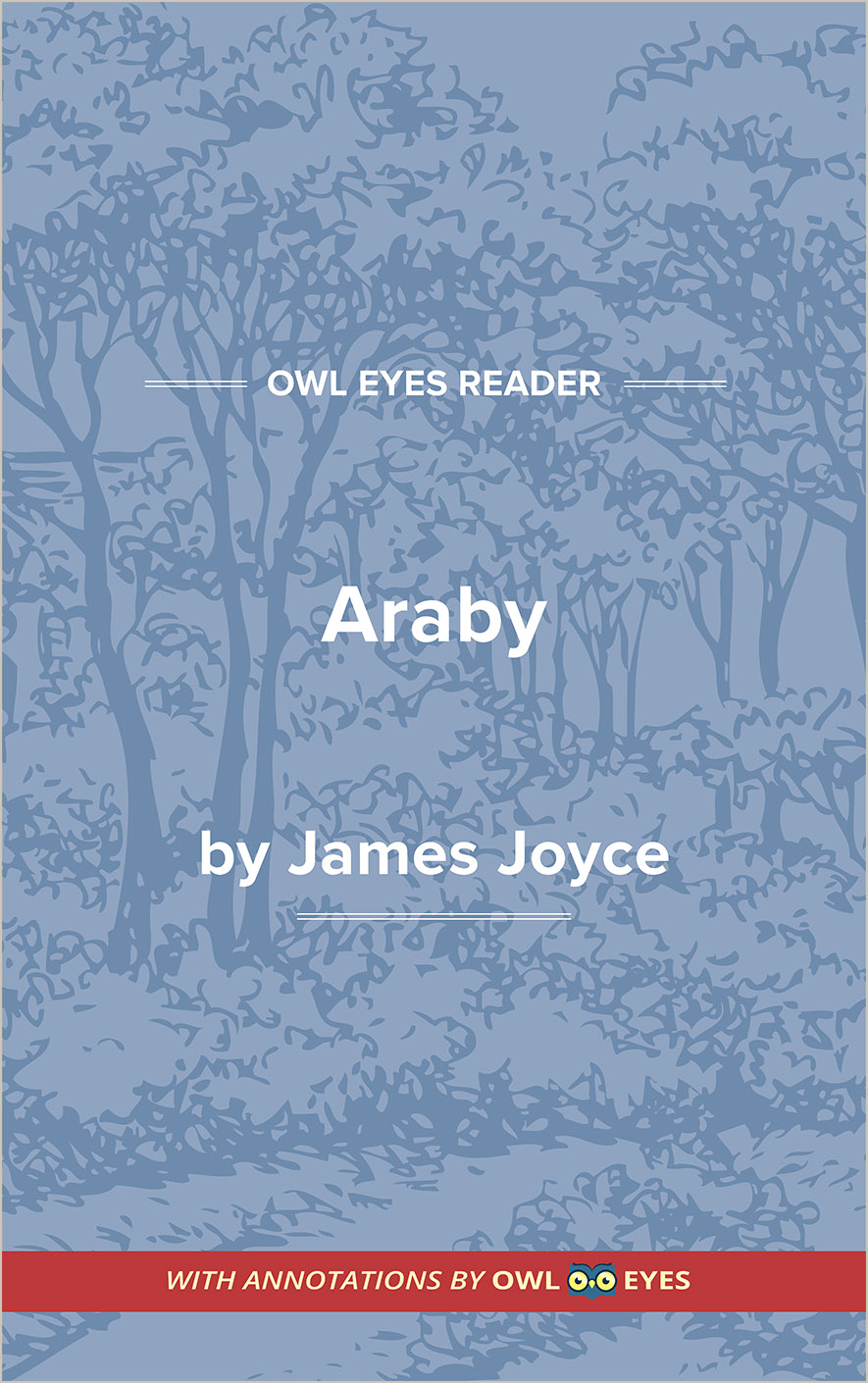Analysis Pages
Themes in Araby
Arguably the central theme throughout the story is loss of innocence, both in the narrator’s belief in religion and his understanding of romance. His religious training led him to place all his faith and devotion in Mangan’s sister, but upon the unsuccessful conclusion of his quest for her gift he realizes that the journey and his infatuation were all for naught. Intertwined with this theme about the loss of innocence is the theme of idealism. The narrator is overly-idealistic about his adoration of Mangan’s sister, and this extends further to his idealism about Araby. This idealization only makes the narrator’s imminent fall more painful and highlights the manipulated way he has been taught to view religion and, subsequently, the world.
Themes Examples in Araby:
Araby
🔒"Gazing up into the darkness I saw myself as a creature driven and derided by vanity; and my eyes burned with anguish and anger...." See in text (Araby)
"though I knew my stay was useless..." See in text (Araby)
"two men were counting money on a salver..." See in text (Araby)
"florin..." See in text (Araby)
"The Arab's Farewell to his Steed..." See in text (Araby)
"Mrs. Mercer..." See in text (Araby)
"Araby..." See in text (Araby)
"there would be a retreat that week in her convent..." See in text (Araby)
"to veil..." See in text (Araby)
"I pressed the palms of my hands together until they trembled..." See in text (Araby)
"These noises converged in a single sensation of life for me..." See in text (Araby)
"I stood by the railings looking at her..." See in text (Araby)
"NORTH RICHMOND STREET being blind..." See in text (Araby)
"He had been a very charitable priest..." See in text (Araby)
"The former tenant of our house..." See in text (Araby)
"The Abbot, by Walter Scott..." See in text (Araby)
"The Memoirs of Vidocq..." See in text (Araby)
"Her name sprang to my lips at moments in strange prayers..." See in text (Araby)

